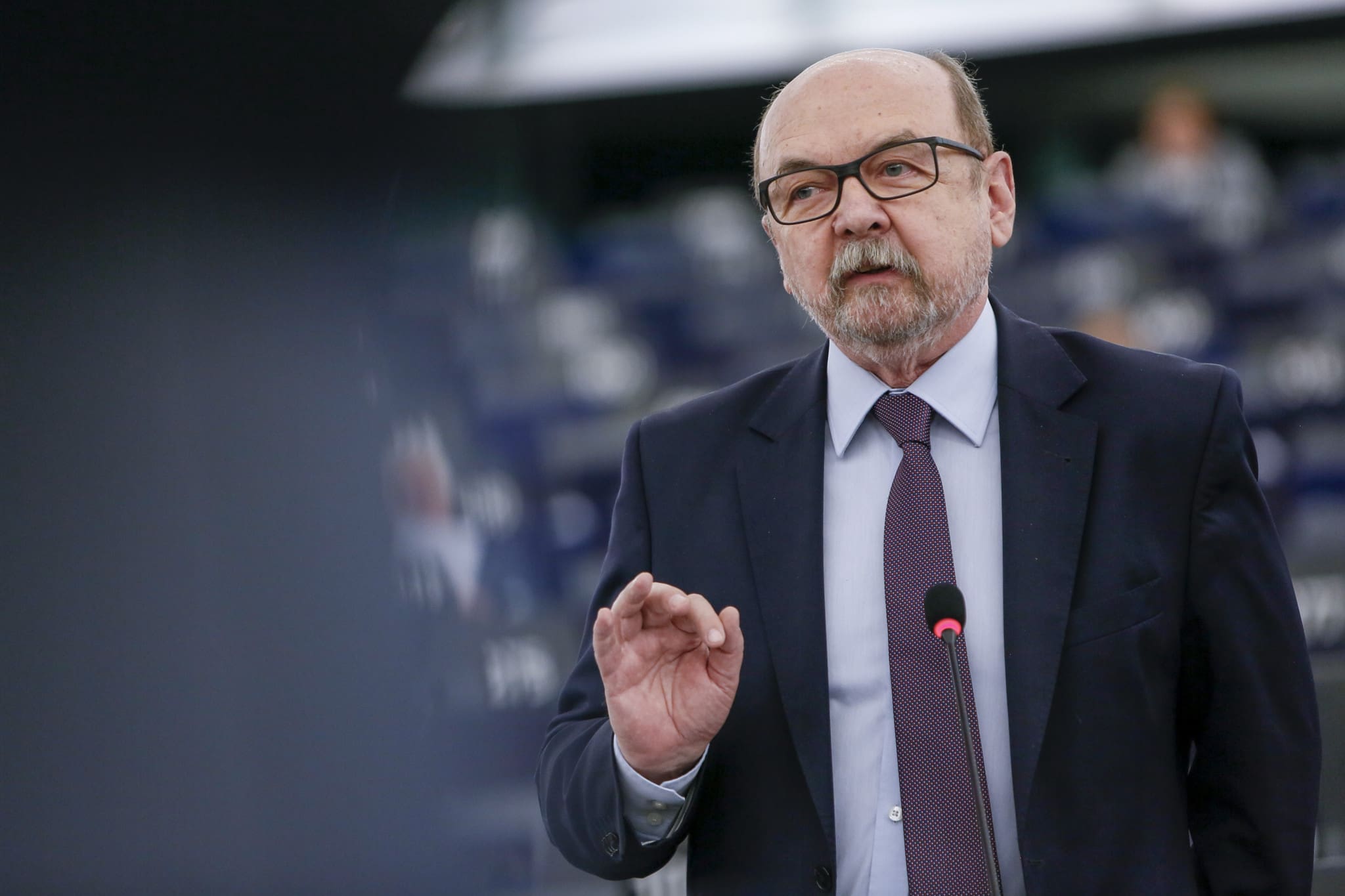Over a year and a half after the adoption of the NextGenerationEU post-Covid recovery plan by the EU, of all EU member states, only Poland and Hungary have still not been transferred a single cent by the European Commission. Poland, however, signed a settlement with the European Commission to that effect in early June. We then heard that the funds would probably start being transferred in September, but now, as European commissioners, including the Commission’s president Ursula von der Leyen, have raised new demands from Warsaw in the media, the Polish government has acknowledged that it could be early next year at best. In your opinion, when can the Poles count on these 35 billion euros that should be allocated to Poland as part of NextGenerationEU?
It seems to me, not anytime soon. The European Commission will do everything it can to delay the payment of those funds, if not eventually block them. It is clear that the Commission is playing dirty and that its goal is rather to make life difficult for the Polish government and, most willingly, to replace it with another government. Elections are a possible, not distant prospect of that.
It is all too apparent that the European Commission is playing a very unfair game, as it keeps making demands that it is not even entitled to make. All the fuss about the so-called rule of law and all the rest is a blatant violation of the EU treaties. As the Polish government agrees to various things, new demands are made that are completely absurd and in no way acceptable.
For example, the European Commission now demands that judges in Poland be allowed to challenge the status of other judges. This would open the door to paralyzing the Polish justice system, and the result would be a mess. Such a mess, in turn, would lead to social unrest and an increase in resentment against the government, and as a result, the ruling party could lose the elections. This is a clear strategy on the side of the European Commission.
In my opinion, the European commissioners, and especially the Commission’s president, are playing to their own interests here. Ms. Ursula von der Leyen probably fancies a second term, and if she played fair with the Polish government, her chances for a second term would drop very dramatically. If, on the other hand, she plays rough with the Polish government and withholds its money and perhaps even leads to its overthrow, her chances of a second term will be very good.
I think this is also what is at stake here. And it also applies to some other commissioners. After all, Ms. Jourová won’t have a chance to become a commissioner again, since the ruling coalition in Czechia changed after the last elections. But if she plays hard enough with the Polish government, she’ll earn her way in and perhaps get a cozy sinecure in the Commission or another EU institution.
So I understand that, in your opinion, meeting even these very far-reaching 116 milestones that are listed in the June agreement as conditions to fulfill for Poland to get the NextGenerationEU funds will not help at all because that is not what the European Commission wants.
That’s not the point, indeed. The idea is not to help but to hinder Poland. One can see very well how the Commission works, how the commissioners work, how the Parliament works, and even how the ECJ (European Court of Justice) works. They act to strengthen their own competencies, and strengthening their own competencies is best done against conservative governments from Eastern Europe, because then you gain the support of the mainstream, the support of the institutions, the main political parties, and Western governments don’t particularly interfere, because why should they? Somewhere out there in Eastern Europe, some conservatives are being harassed, so they think that’s a good thing.
This is all about brutal political gamesmanship, not about some European values, the rule of law, and recovery from the post-Covid crisis. The idea is first to strengthen and expand Brussels’ competencies, and second to overthrow or at least marginalize right-wing governments in Eastern Europe.
Does that mean that the cases of Poland and Hungary being dealt with through financial blackmail, which can be done only against countries that are net beneficiaries of the EU budget, are intended to expand Brussels’ competencies at the expense of all EU member states?
Yes and no, because these competencies are relative. The European Commission will not, after all, come out forcefully against the big players of Western Europe, against France, or against the Federal Republic of Germany, because this power that the Commission and other institutions have owes a great deal to those very countries. Germany and France implement their policies through European institutions. Now, for example, the Commission wants to help Germany with gas, while in the case of those several million Ukrainian refugees, it did not want to help Poland at all.
There are sort of two power structures in the European Union. There is the one enshrined in the treaties and there is the real one. You can write 10 times in the treaties that all member states are equal, but we all know that they are not. It cannot be said that Romania, on the one hand, and Germany, on the other, are equal countries. You can’t strengthen Romania beyond what it is politically by a treaty provision, and you can’t weaken Germany or France by a treaty provision, depriving them of what they have, which is the political reality, economic reality, and so on.
Hence, there is this foul play going on all the time in the European Union, and the attitude toward the treaties is, I would say, rather lighthearted. There is this weaker part of the EU, and in relation to this weaker part, the European institutions can strengthen their powers and go wild, show the full extent of their might; they can interfere, they can order, they can threaten, they can blackmail. But they won’t be doing that to Germany, France, or the Netherlands. That would be foolish.
There was a moment at the end of 2020 when the multiannual budget could still be vetoed, and it seemed that it was the one moment when Poland and Hungary could force their point of view on the EU-27 to defend their sovereignty. This opportunity was not taken, however, and this leads to two questions. First, in your opinion, was it a mistake on the part of Prime Ministers Morawiecki and Orbán to back down from this veto? And second, since this opportunity was missed, what can be done now?
I think it was a mistake. Both Prime Minister Morawiecki and Prime Minister Orbán felt that the Council’s conclusions would somehow calm down the situation. However, this did not happen. Neither of them appreciated the determination of European institutions and parties to fight the Polish and Hungarian governments.
Another thing is what the consequence of this veto would have been. Knowing the European Union as I know it, there would probably have been some attempt to circumvent this veto, because, as I’ve said, the attitude to treaties there is very frivolous. They would probably have come out with a gimmick, which the Court of Justice would have rubber-stamped. Anyway, it’s no use crying over spilled milk.
However, it is much more difficult to answer the second question. What can be done now? I don’t know, I can’t answer that. There are declarations by the Polish government that enough is enough for Poland, “non possumus,” and that from now on we will act, as one politician expressed it, according to the principle of “a tooth for a tooth.” What exactly this might mean, I don’t know, but I hope that the Polish government has now rid itself of any illusions. I myself am waiting for action.
Some in the ruling camp are calling for Poland to withdraw from the NextGenerationEU plan and to denounce Polish guarantees on joint debt for the part that is distributed to member states as loans. But things get more complicated with the increased contributions to the EU budget for all member states to cover the subsidy part of the NextGenerationEU recovery plan and whether Poland can deduct the corresponding amounts from its own contributions. Do you think it would be possible at all for Poland to withdraw from this scheme?
It seems that it is not that simple. I’m not a lawyer, but I’ve read analyses saying that this would not be an easy process. It would of course be the best solution, but remember that the European Commission and other European institutions want to deprive us of money in general. It’s not just about the recovery plan, but also about the EU budget. Things could get pretty hot.
You said in an interview with Gazeta Polska Codziennie last week that it is not realistic to consider Polexit due to the lack of political consent from the Polish public, but that sooner or later the European Union will itself implode or collapse. Do you think this is a foregone conclusion due to the constant fights caused by EU institutions seeking to expand their powers and impose certain ideologies on member states? Must this lead to the end of the European Union?
The European Union is indeed sowing the seeds of its own destruction. The number of people who are critical of or even hostile to the European Union is significant, even more so in the West than in Eastern Europe. But in the East too, that number is growing. The mess and the arrogance, I believe, will have an effect.
For now, we only have two countries that won’t submit in Central and Eastern Europe, and it is clear that the idea is to stifle this resistance so that their disobedience does not spill over.
However, such disobedience is also present in Western European countries, where there are right-wing parties that are very critical of the European Union. If these parties gain influence or power, the conflict will get sharper and more serious. Elections in France have shown that quite a large proportion of the French vote for candidates whose attitude toward the Union is unenthusiastic, to say the least. Even a “Mister Europe” like Michel Barnier said that France should regain its legal sovereignty from the ECJ.
The truth is, Europe as a whole does not look quite like the European Parliament, where a shouting, enthusiastic majority cries constantly “more Europe, more Europe.”






